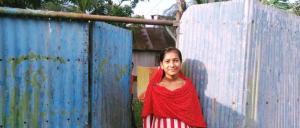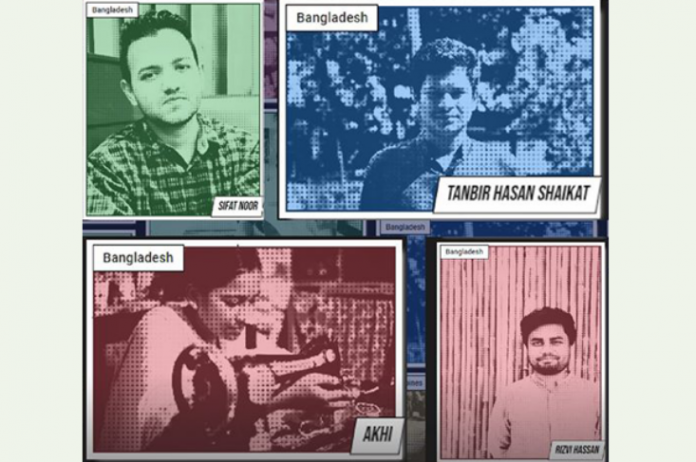4 Bangladeshi youths have been recognized as real life heroes. On the occasion of ‘World Humanitarian Day’, the United Nations has put a number of people from all over the world on the list for their special contribution in the service of art and humanity in the current situation.
The UN website has a picture of Bangladeshi Rizvi Hasan and the context of service work for Rohingya refugees in Cox’s Bazar.Note that August 19 was declared ‘World Humanitarian Day’ by the United Nations. Recognizing the people who have volunteered to serve humanity in this special situation before him is expected to inspire others.
Dhaka University student Tanvir Hasan Saikat, BRAC engineer Rizvi Hasan, translator Sifat Noor and Ankhi Biral received the honor for not being under house arrest to save their lives like others during the Corona epidemic, but for being by the side of the victims and helping the helpless. The United Nations believes that each of them has a unique role to play in humanitarian work.
According to the UN website, the beach began helping marginalized people from campus when other university students left campus and went home in the wake of the Corona epidemic. After 117 consecutive days of activities since the beginning of April, when the outbreak of corona subsided, he went to Sunamganj and helped the flood-hit people. The beach continues these activities with financial support from friends and well-wishers.
Another Bangladeshi Ankhi Biral recognized as a real life hero.Ankhi (17), a teenager from Rupsha Char in Bagmara of Khulna’s Rupsha Upazila, dropped out of school due to poverty. Her family was devastated by the coronavirus epidemic. The girl was recognized by the United Nations as a ‘real life hero’ for making a mask against corona and selling it to the poor at low prices. At one time, like many other children in Bangladesh, the private development organization ‘World Vision’ helped to rehabilitate the children engaged in child labor. Although she could not return to school due to her age, the company trained her as a tailor. The company later gave her a sewing machine and some clothes. From there she dreamed of building her own garment factory.
Ankhi now runs her own business with the help of her mother and older sister. If the coronavirus is infected in Bangladesh, there is a mask crisis. And then she started making masks. She sells these masks at low prices among the poor people in the neighborhood.
Rizvi Hasan, another UN-recognized Bangladeshi, grew up in Dhaka. After studying architecture, Rizvi started working for the private development agency BRAC. He got the job of building a cyclone center for the Rohingya camp in Cox’s Bazar. That’s when he saw various charities trying to provide low-cost housing for Rohingya fleeing violence in Myanmar. In this situation, she began to build safe places at low cost to provide services to women victims of gender-based violence. In these places, women of Rohingya camps are given training to develop various skills including counseling. BRAC and UNICEF are providing safe services and training to many women through these exceptional installations.
Another young Bangladeshi, Sifat Noor, has been recognized by the United Nations as a real-life hero for his translation work. The United Nations believes that people need information and communication just like food, water and shelter in any crisis. All this information and communication has to be in their own language. And this is where the work of a translator becomes important.
The United Nations says Sifat is a hero of humanity. Because, he has translated many important, life-saving important information into Bengali.
He has translated more than 115,000 words into Bengali since he started working for Translator Without Borders in March 2020. He has been able to deliver life-saving information to more people by translating these words on behalf of important organizations like IFRC and UNHCR Bangladesh. Many people have been able to keep themselves and their family members safe through his recent translation work on Kovid-19.


